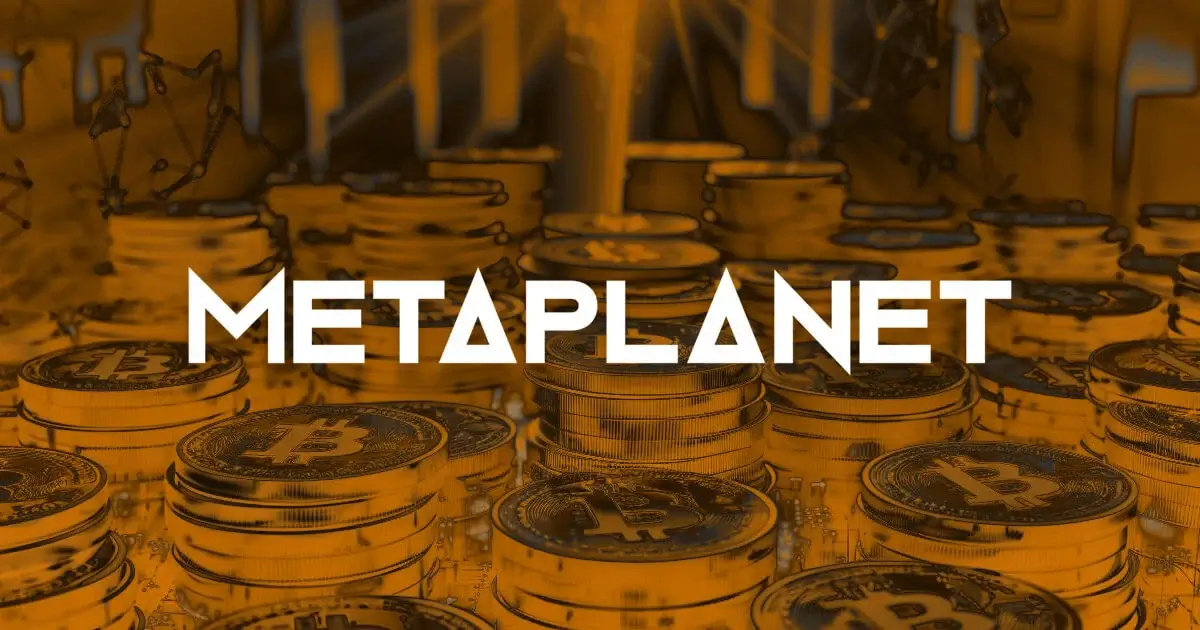Metaplanet Seeks $62 Million to Boost Bitcoin Holdings
28.11.2024 18:30 1 min. read Alexander Stefanov
Metaplanet, a prominent Japanese firm known for its heavy Bitcoin investment strategy, is seeking to raise up to ¥9.5 billion (roughly $62 million).
The company plans to use these funds to expand its Bitcoin holdings and strengthen its position as one of the largest institutional Bitcoin investors.
The funding initiative will involve issuing stock subscription rights with variable strike prices, a move designed to appeal to investors who are eager to capitalize on Bitcoin’s growing market momentum. Currently, Metaplanet holds over 1.14 million BTC, valued at about $108 million based on current prices.
This initiative mirrors strategies seen in companies like MicroStrategy, which has built its Bitcoin reserves through both debt and equity financing, aiming to leverage the cryptocurrency as a long-term store of value amid economic volatility.
Metaplanet’s decision highlights the increasing interest in Bitcoin among Japanese companies, as the firm seeks to benefit from Bitcoin’s potential as an inflation hedge and its wider adoption across global markets. This move is also expected to further influence the view of Bitcoin among Japanese investors, increasing its appeal to institutional buyers.
With Bitcoin’s recent price growth and predictions of broader adoption in the coming years, firms like Metaplanet are positioning themselves for substantial future returns.
-
1
Strategy’s Michael Saylor Says Bitcoin’s Volatility Era Is Over
13.06.2025 8:00 1 min. read -
2
Quantum Computing Won’t Kill Bitcoin, Says Michael Saylor
10.06.2025 12:00 1 min. read -
3
Bitcoin Struggles as Selling Pressure Mounts Amid Geopolitical Turmoil
13.06.2025 15:00 2 min. read -
4
Bitcoin on the Edge: Why One Veteran Trader Sees a 75% Plunge
11.06.2025 13:00 1 min. read -
5
Why Michael Saylor Bet on Bitcoin During the COVID Cash Crisis
12.06.2025 19:00 2 min. read
Strategy Boosts Bitcoin Holdings to 597,325 BTC with Latest Purchase
Bitcoin giant Strategy has added another 4,980 BTC to its reserves in a purchase worth approximately $531.9 million, according to Executive Chairman Michael Saylor.
Veteran Trader Peter Brandt Shares Simple Wealth Strategy with Bitcoin at Its Core
According to renowned market veteran Peter Brandt, trading isn’t the path to prosperity for the vast majority of people.
Why Bitcoin Is Stuck Despite Wall Street Demand
Charles Edwards, founder and CEO of Capriole Investments, has offered a fresh perspective on Bitcoin’s stalled price movement near the $100,000 mark, despite growing institutional enthusiasm.
Metaplanet Now Holds 13,350 BTC Worth $1.4 Billion
Metaplanet has expanded its Bitcoin treasury with a new acquisition of 1,005 BTC valued at approximately $108.1 million, further cementing its status as one of the largest corporate holders of the digital asset.
-
1
Strategy’s Michael Saylor Says Bitcoin’s Volatility Era Is Over
13.06.2025 8:00 1 min. read -
2
Quantum Computing Won’t Kill Bitcoin, Says Michael Saylor
10.06.2025 12:00 1 min. read -
3
Bitcoin Struggles as Selling Pressure Mounts Amid Geopolitical Turmoil
13.06.2025 15:00 2 min. read -
4
Bitcoin on the Edge: Why One Veteran Trader Sees a 75% Plunge
11.06.2025 13:00 1 min. read -
5
Why Michael Saylor Bet on Bitcoin During the COVID Cash Crisis
12.06.2025 19:00 2 min. read


